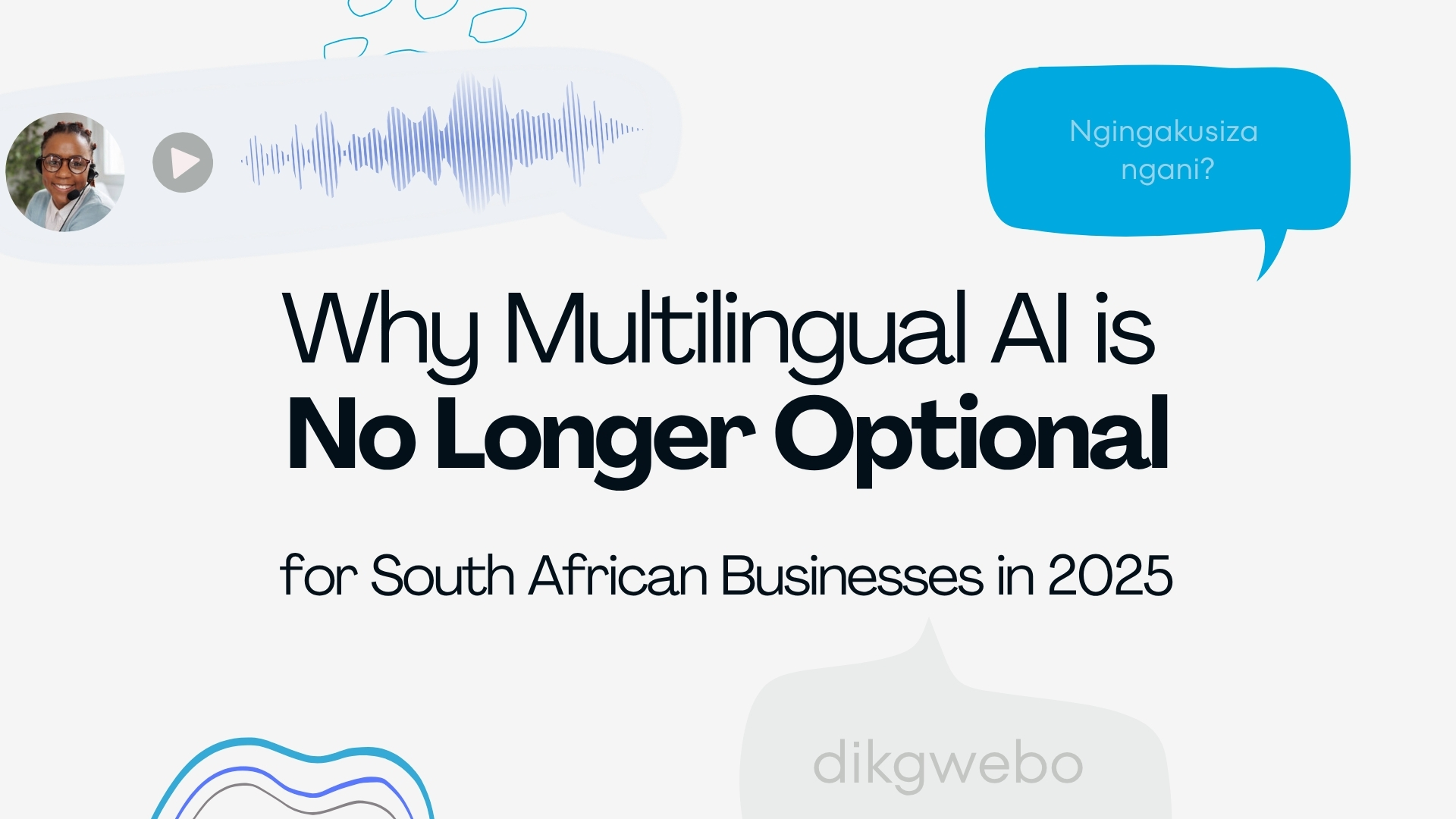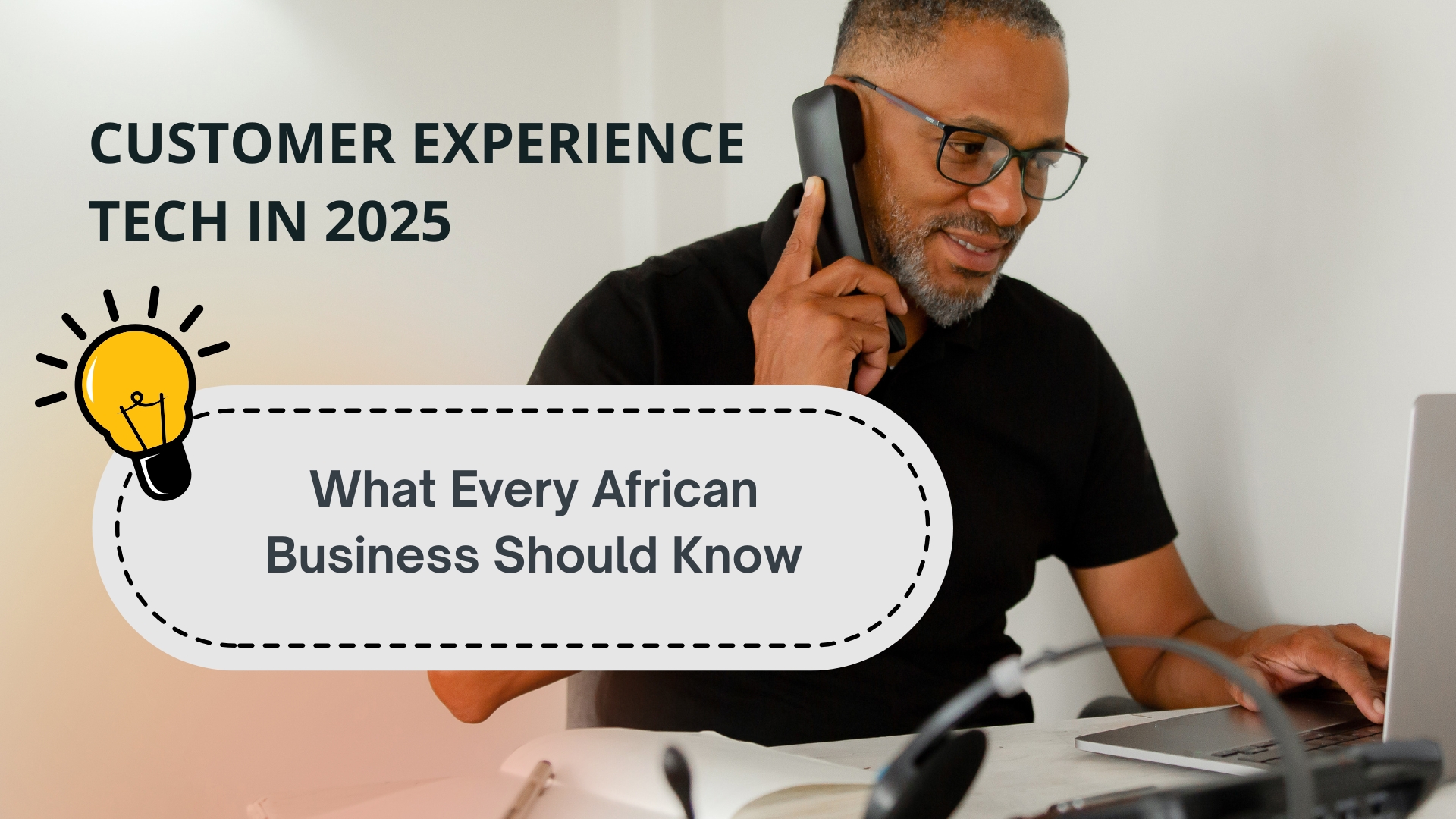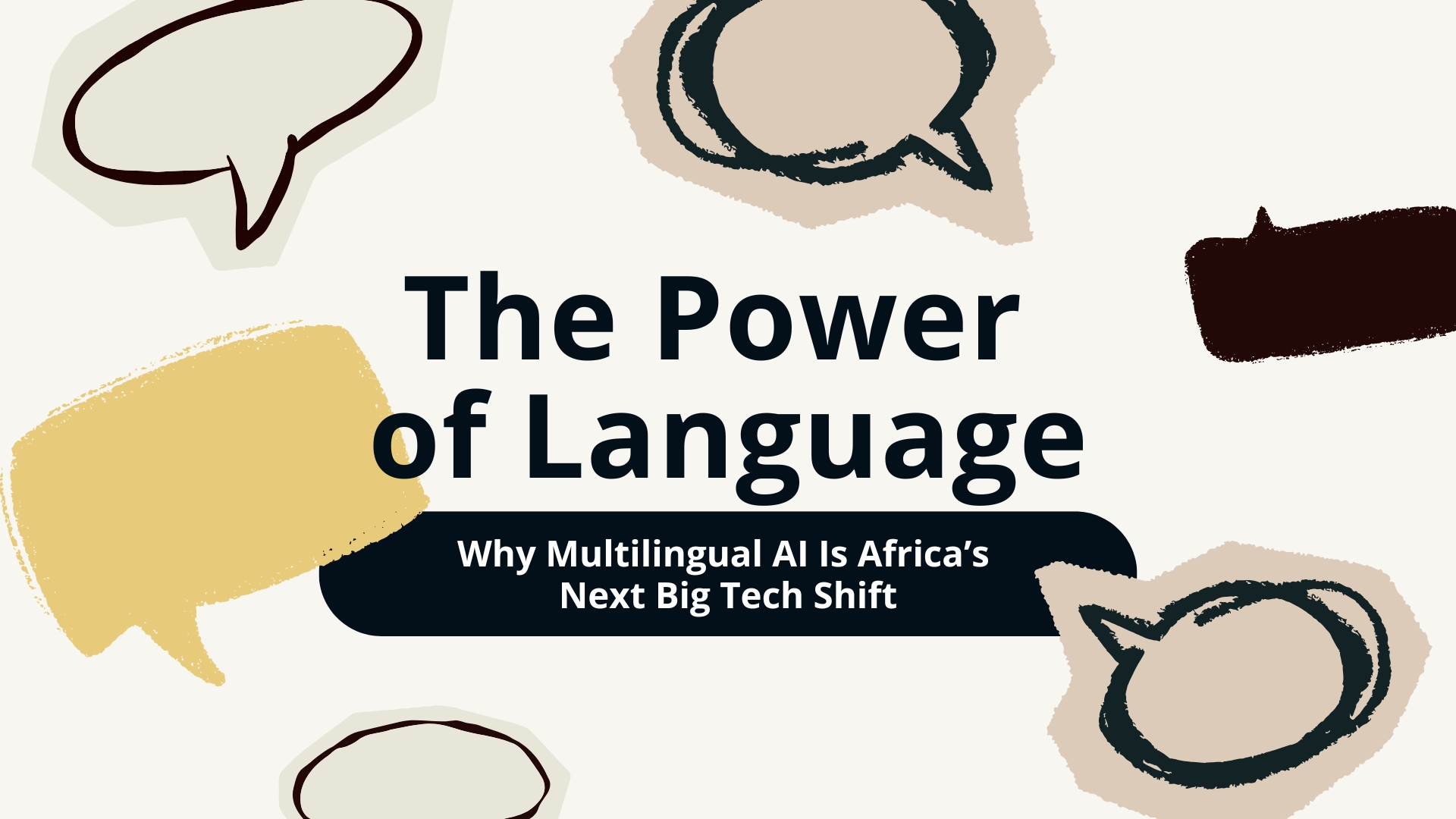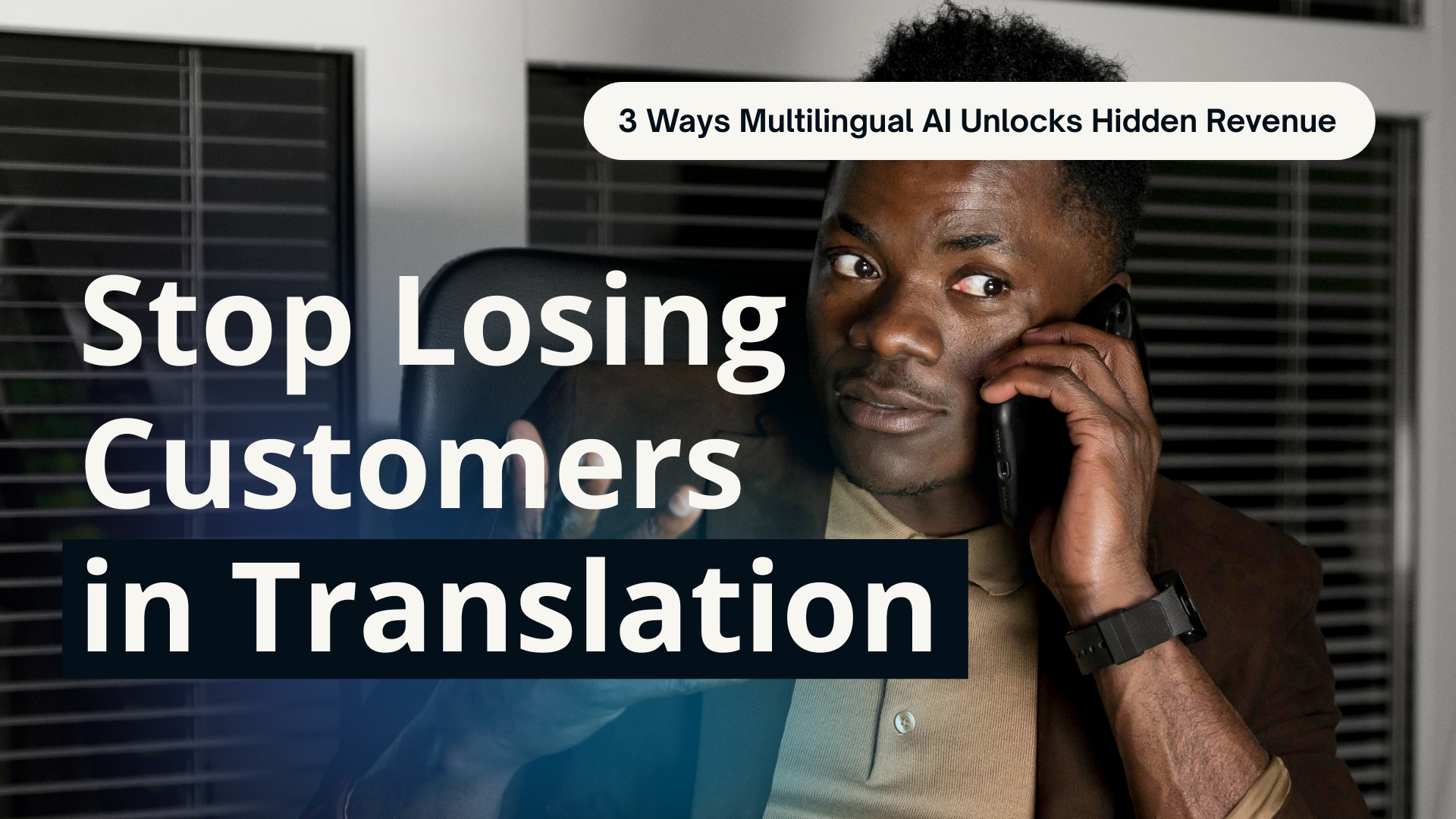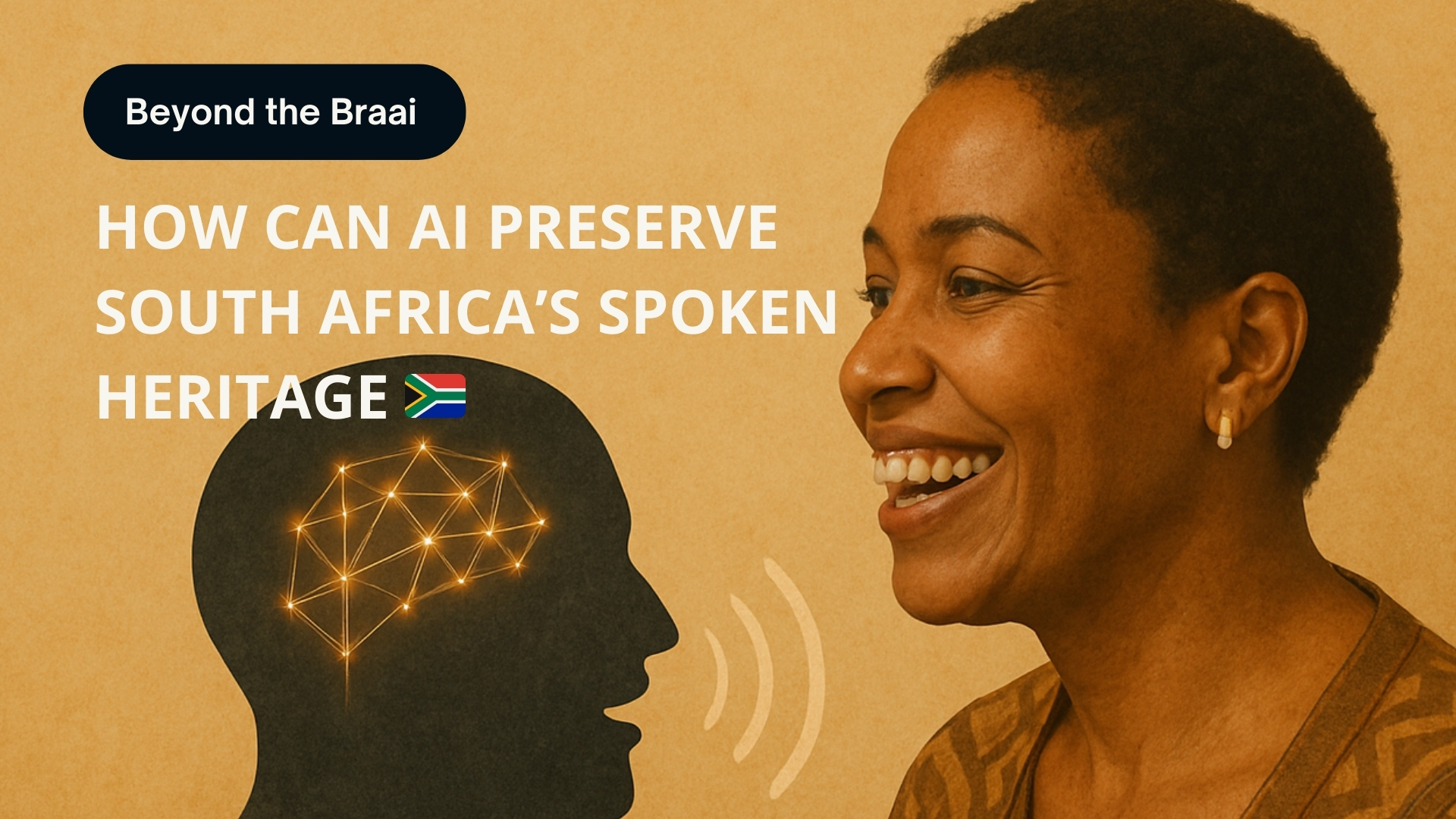The New Standard for Customer Engagement
In 2025, customer expectations are at an all-time high. Personalisation is no longer a luxury – it’s the baseline. Customers expect businesses to not only know who they are but to speak to them in the language they are most comfortable using. This isn’t merely a trend; it’s a new standard driven by rising customer expectations, the urgent need for competitive differentiation, and the undeniable growth of linguistic diversity among online consumers, especially here in South Africa.
As South Africa’s digital transformation accelerates, the demand for inclusive, linguistically relevant digital experiences is only growing. Multilingual AI solutions are no longer a future consideration – it’s a strategic imperative for businesses looking to differentiate, build loyalty, and meaningfully serve the real South African customer. Businesses that fail to acknowledge this reality risk alienating a large amount of their potential market, while those that embrace it stand to unlock unprecedented growth and loyalty.
The South African Language Landscape: Untapped Potential
South Africa’s rich linguistic diversity is one of its greatest assets – and yet, it remains largely overlooked in the digital customer experience landscape. With 12 official languages, including South African Sign Language, our country is one of the most linguistically diverse in the world. While this diversity is a source of immense cultural richness, it also presents a unique challenge, and a significant opportunity, for businesses operating within its borders.
Let’s look at the numbers from the 2022 Census to truly appreciate this landscape:
- isiZulu stands as the most common home language, spoken by nearly a quarter (24.4%) of the population.
- isiXhosa follows closely behind at 16.3%.
- Afrikaans accounts for 10.6% of home language speakers.
- Sepedi (10%), English (8.7%), Setswana (8.3%), and Sesotho (7.8%) are also widely spoken as primary languages.
- The remaining official languages – Xitsonga, siSwati, Tshivenda, and isiNdebele – contribute significantly to the country’s overall linguistic mosaic.
What’s striking is that while English is often considered the language of business and government, it is the home language for less than 9% of South Africans. This creates a glaring disparity in how most businesses currently interact with their customers. What’s more, South Africa’s rapid digital transformation has not adequately accounted for this linguistic landscape. Many websites, chatbots, and call centre solutions default to English, with limited or no support for indigenous languages. This exclusion compounds digital inequality and alienates customers who prefer to engage in their mother tongue.
The opportunity here is clear: businesses that embrace multilingual engagement are not only creating more inclusive experiences – they are unlocking new markets. By offering services in the languages people actually speak, companies can build stronger relationships, improve brand loyalty, and tap into underserved customer bases that competitors are neglecting.
Why Monolingual AI Solutions Are Falling Short
Many AI-powered customer service solutions in the market today claim to offer “multilingual” support – but a closer look often reveals a shallow approach that fails to truly meet the needs of South African consumers. While some global platforms provide multiple language options, their focus tends to be on widely spoken international languages like French, Spanish, or Mandarin, with limited – if any – support for South Africa’s indigenous languages.
The reality, particularly in linguistically rich environments like South Africa, is that monolingual AI solutions are falling severely short, creating frustrating customer experiences and limiting true market penetration. The issue goes beyond language selection. Monolingual or superficially multilingual AI systems often miss cultural nuances, local idioms, and the specific ways in which South African customers express themselves. For example, a chatbot that technically supports isiZulu may still fall short if it cannot understand local slang, regionally specific greetings, or culturally significant phrases. This leads to frustrating user experiences where customers feel unheard or misunderstood, even when interacting in their preferred language.
Monolingual solutions – or poorly adapted multilingual ones – exclude a significant portion of the market. Businesses that rely on these systems risk losing customers to brands that can meet them where they are, in the language they are most comfortable using. In today’s competitive landscape, this is not just a missed opportunity – it’s a critical flaw.
The Power of Multilingual AI: Real Use Cases
At Botlhale AI, we’ve always believed that multilingual customer engagement isn’t a nice-to-have – it’s essential for businesses that want to serve the real South African market. Our suite of solutions – Vela, BUA, and Voice APIs – are designed to help businesses move beyond language barriers and create authentic, accessible experiences for all their customers.
Real Impact: MultiChoice’s Multilingual WhatsApp Experience
One of our most impactful collaborations to date has been with MultiChoice, where we supported the development of their multilingual WhatsApp channel for DStv customers. This was a significant project aimed at improving customer service for South Africa’s linguistically diverse audience.
By working with Botlhale AI, MultiChoice was able to:
- Make their WhatsApp channel accessible in multiple South African languages, not just English.
- Serve a wider customer base by enabling native-language interactions that feel natural and personalised.
- Demonstrate leadership in digital customer engagement by offering true linguistic inclusivity.
As Kelebohile Ramoolla, Product Owner at DStv WhatsApp, shared:
“Botlhale AI has played an instrumental role in elevating and personalising our customer service experience by making our WhatsApp channel available in multiple languages. This project required meticulous planning, advanced technological solutions, and a deep understanding of our diverse customer base.”
Why This Matters
By offering solutions that are not only technologically advanced but also deeply attuned to the linguistic and cultural realities of Africa, Botlhale AI is breaking down barriers and unlocking new possibilities for businesses. These are not just technology upgrades – they are business growth drivers. Companies that embrace multilingual AI:
- Improve operational efficiency.
- Build deeper customer loyalty.
- Differentiate themselves in increasingly competitive markets.
How Botlhale AI is Leading the Charge
As the demand for inclusive digital services continues to grow, Botlhale AI stands at the forefront – bridging the language gap with technology built for Africa, by Africans. While many providers offer generic solutions with surface-level language support, Botlhale AI delivers deeply localized, linguistically rich AI tools that meet the needs of South African businesses and customers alike.
Our technology is designed with a singular purpose: to make every customer interaction intelligent, inclusive, and multilingual. Here’s how we’re doing it:
🔌 Multilingual API Suite
Our suite of developer-friendly APIs powers everything from speech recognition and text-to-speech to natural language understanding in South African languages. These APIs allow businesses to build and scale voice assistants, transcribers, and other AI tools without compromising on local language quality or nuance. Whether it’s Setswana, isiZulu, or Afrikaans, we enable seamless integration of truly multilingual capabilities.
💬 BUA: The Conversational Platform for African Languages
BUA is our low-code platform that empowers teams to build, deploy, and manage intelligent chatbots that speak the languages your customers do. Unlike typical bot builders that rely on translation layers, BUA is built from the ground up to understand local grammar, context, and intent in multiple South African languages. From customer service automation to lead qualification, BUA makes multilingual engagement simple, scalable, and effective.
📞 VELA: Multilingual Call Center Analytics
VELA is our powerful call centre analytics tool that provides deep, actionable insights into customer conversations – across languages. Using AI-driven transcription, sentiment analysis, and performance tracking, VELA helps call centres uncover patterns, coach agents more effectively, and improve customer satisfaction across diverse language interactions. It’s post-call intelligence with multilingual understanding baked in.
Whether you’re looking to launch a multilingual chatbot, build voice-powered customer journeys, or transform your call centre operations with deeper insights, Botlhale AI is the partner ready to walk this journey with you.
We’re here to help businesses build for everyone—and win everywhere.
Contact us to learn more about how we can help you elevate your business!

